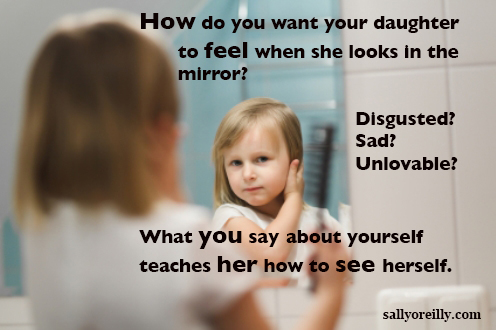People (well, some people) are losing their sh*t over this (in my opinion) GREAT ad.
Behold:
Continue reading

People (well, some people) are losing their sh*t over this (in my opinion) GREAT ad.
Behold:
Continue reading
“Are you f*&king serious?” she asks me, looking at me in that angry / scared / amused way that only teens can do. I like this girl, this young woman. She’s valiant, honest and has a righteous rage.
I am serious I tell her. Really serious.
Moments earlier she’d whipped out her phone to show me an article that she read on the way to my office. The grim headline read: Ireland has the highest rate in Europe for young girls taking their own lives
And I had asked her why she thought this was the case.

I was going to start by saying I don’t want to frighten you, but actually I do.
These are figures published today by CyberSafeIreland. Frightened yet?
Lots of people are doing a lot of talking (again) about setting rules for kids around their use of technology and that’s (still) a really good thing. But when are we actually going to do it?
Saying you're not tech savvy no longer cuts it - we all need to wake up and take responsibility for what's happening all around us, in our own homes #parenting #cybersafety #staysafe #tweens #teens Share on X
We don’t have to look far to find examples of how tech is damaging (as well as enhancing) the lives of our kids – it leaks into everything doesn’t it? Nothing is untouched by tech these days – unless you are super strict and have none in your house.. in which case I guess you won’t be reading this..
I digress.. 
While there is a lot written telling parents to set rules, there isn’t quite as much written about what exact rules to set. And so parents are still left scratching their heads somewhat – it’s not as if we can refer to what our parents did. We are still coming to terms with this shiny new toy ourselves!
So, this is getting serious. As adults, we need to cop on, set the rules and stick to them.
Starting off with rules and sticking to them is the way to go. Kids will not set their own boundaries, they are not equipped to do so and not only that, but they are relying on us to do this for them.
Several weeks ago a thirteen year old boy that I work with told me he’d been awake ’til 3am gaming – an over 18’s game, but that’s not the main point. The main point that struck me was this – he said he was exhausted. That he couldn’t concentrate in school. I agreed that he certainly looked tired. He said “Ya.. I know.. I wish my parents would notice that..”.
He said it would be easier for him if they just took his tech and set rules. That way he’d sleep better and be able to blame them when him gaming buddies whined that he wasn’t online. He thought it was nice that they trusted him but seriously – how could he resist the temptation??
Rules must be set, much as we want to communicate trust to our young people. One way to communicate that trust is to set rules, and then trust them to play ball.
My suggestion is pretty old school: write a list of rules, stick them up on a wall, or several walls and be ready to discuss in advance and then issue consequences (not necessarily punishments) for rule breakage. These consequences will be removal of privileges – tech related privileges will likely work best .
1. No phones (or laptops, tablets, iPads, iPods or TV’s) to be used in any way during meals. Ideally have a bowl or a box to temporarily chuck them into. Y’know, gently. Note your own discomfort with this idea (are you resisting it already??) This is where we need to model the behaviour we expect. If you don’t, you’ll look like a hypocrite to an acutely sharp teenage eye and also it will definitely get thrown into your face during a future argument! Phone etiquette is a modern social skill – we all need to adapt and learn it!
2. Homework first. Lots of houses have a rule where TV or whatever is turned on as soon as the school bag hits the floor – that’s certainly what happened in my house. My suggestion is though that access to tech happens only after homework and/or a small household job or two or done. This will have lots of benefits long term – your child will learn self-discipline, patience, and responsibility. It will also help them avoid the distraction and procrastination that goes with TV watching and it will enhance their enjoyment of said distraction when they finally get to it because nothing will be hanging over them. We need to teach relaxation and reward too!
3. Screens off at the same time every night. We know that the blue light emitted by screens, even small screens like phone interferes with the production of melatonin. This is bad news for sleepy time. And that’s bad news for pretty much everything from academic performance to overall physical and mental health.
(Goes for adults too… #JustSayin
4. Bedrooms should be tech-free zones. Two reasons for this –
Allowing your teen to have a TV in his bedroom will only encourage him to watch a lot of TV and it will be nearly impossible to monitor what he’s watching and how much TV he’s watching. Another idea is to have phones shut down at night and handed over to you until morning. There are thousands of kids all over the world texting and snapping into the small hours and wandering around like zombies the next day. You can prevent this. And they can blame you if they get grief from friends who didn’t get the replies they wanted late at night. Two birds, one stone.
5. And while I’m there, all mobile devices and non mobile devices should be used in front of you so that you can see what they are accessing and monitor for inappropriate content. It’s true that other parents may not be this vigilant, but at least while they are in your home you can protect them in this way. I’ve heard parents say that they’ll access stuff elsewhere so what’s the point?! This may well be true if your have a normal child! However, if they have an anchor to refer to – ie your rules- it’s more likely that they will be aware of what’s OK and what isn’t, even if they access it. And that’s a good thing.
6. I’ve mentioned before in a piece about sexting that having passwords to your child’s social media is really important. And again – they may have duplicate accounts, they may have spare phones – it happens! You can only do your best to teach this stuff and have these conversations.
As an aside, a friend of mine recently snapchatted a funny selfie to her 13 year old daughter’s friends which I thought was risky but genius! The daughter took it very well, surprisingly, not without eye rolling, but the real gold was this – now all the daughter’s friends know that her parents have access to her snapchat. Instantly reducing the risk of nastiness or inappropriate photos or comments coming her way.
Good isn’t it??!
Have conversations about security online, how to block people, how to limit/ restrict people and how to be wise about who to follow and who to friend. Now I know that clocking up millions of friends is what your child will want to do and there is a limit to what you can control but this is not a reason to avoid the discussion. As with everything, we need to anchor ideas and standards so that we can, and they can refer to them. And so that they can blame the strict annoying adults if they need a ‘get-out’.
7. Warn your kids not to disclose family information online. It can be embarrassing and shaming on a personal level (“My brothers girlfriend dumped him LOL”) and it can be unsafe (Excited for family trip to Florida tomorrow!) – the local burglar industry will be thrilled with that one!
Incidentally – I’ve seen adults do this too – do you?
So here y’go – feel free to print if you think it’s a fit for you family. Depending on the ages you may want to tweak here and there.
Finally, learn about the tech your child is using. I’ve mentioned this before when talking about sexting and I’ll continue saying it forever. Play their games, use their apps (that’s a piece I wrote after I discovered a child I knew personally was unwittingly putting herself out there) We the grown ups simply must know how stuff works. This will help keep your child safe.
So, we know that screen time is linked to obesity, sleep issues, violence, behavioural issues, social issues, educational problems as well as all the good stuff of course. Setting boundaries and rules around its use will benefit the whole family – especially if you get creative and come up with alternatives!
Good luck – it’s a challenge!

I’ve taken up running again (grateful nod to the best physio in the world), and to keep me company I’ve downloaded hours of nerdy sciencey podcasts – and it’s brilliant!
My current addiction is “You Are Not So Smart” – it’s super informative and one doesn’t have to be a scientist or academic to ‘get’ it. And it has this way of helping you to understand that a lot of what you thought you knew is wrong – or at least has been improved upon. If only I could force all the world leaders to subscribe … AND it’s free! ( As I’m here I also recommend 99% Invisible and The infinite Monkey Cage which is very funny as well as fascinating).

Setting boundaries and creating rules that feel reasonable and workable is a real challenge for parents. In recent years, one of the toughest challenges is what to do with all the tech in our homes.
What exact rules can we set? Not just for tweens and teens – but for ourselves too?
This topic emerges on an almost daily basis for me – professionally but also socially. And so I wrote this piece as an offering of guidelines – they are just guidelines. There is no right or wrong, and every family is different. I’m hoping this piece might help and inspire you if you are finding it hard to decide what rules to set with your own kids.
In my next piece I’ll describe in more details how to decide what consequences to use when rules are broken – and as always please feel free to comment and give me your own tips!

You’ve probably already heard about the new Calvin Klein advertising campaign. It’s worked, that’s for sure, in that Twitter and Facebook can’t get enough of complaining about it. And of course the pro-sexism and creepy factions can’t get enough of defending it and lashing out at people who recognise it for what it is – blatant sexist glamourisation of and dismissal of sexual harassment.

Firstly let’s define sexting:
Sexting is the sending of a sexually revealing image of oneself or an explicit text using a phone, or other device that is connected to the internet. You will have heard about the celebrity photo leaks, most notably the recent Jennifer Lawrence leaks .
And last week we heard about SnapChat pictures being leaked.


I had an unnerving experience two days ago and haven’t quite yet recovered.
This thing happened in the changing room of my local gym.
Here’s a meme I made for the occasion. It might give you a clue as to where I’m going with this…

This is a conversation with Chrissie Russell, freelance journalist, about some of the positive and negative impacts that technology can have on our relationships. You will notice that I caution strongly against vilifying technology – partially because I have deep love of my own iPhone!!